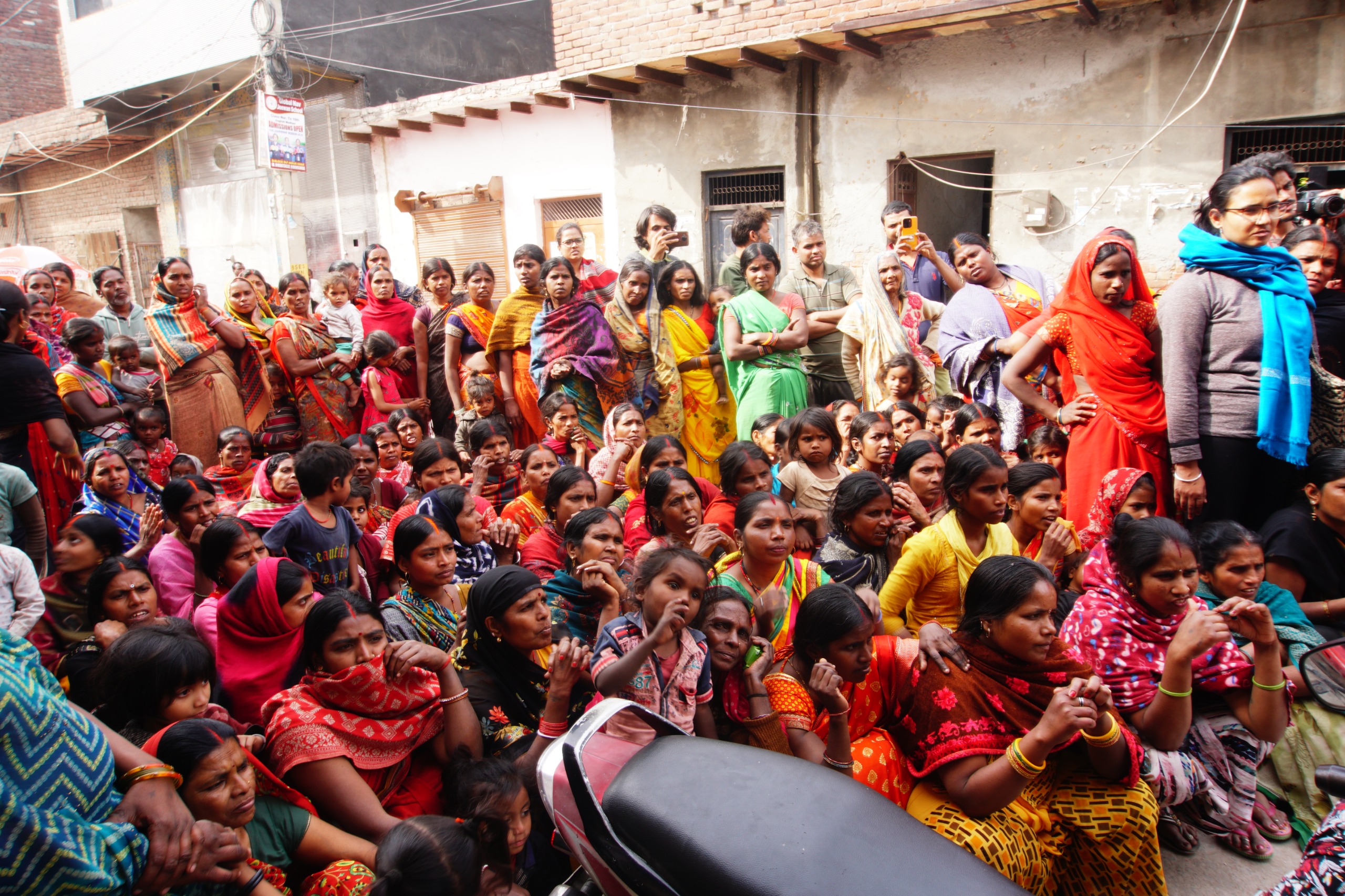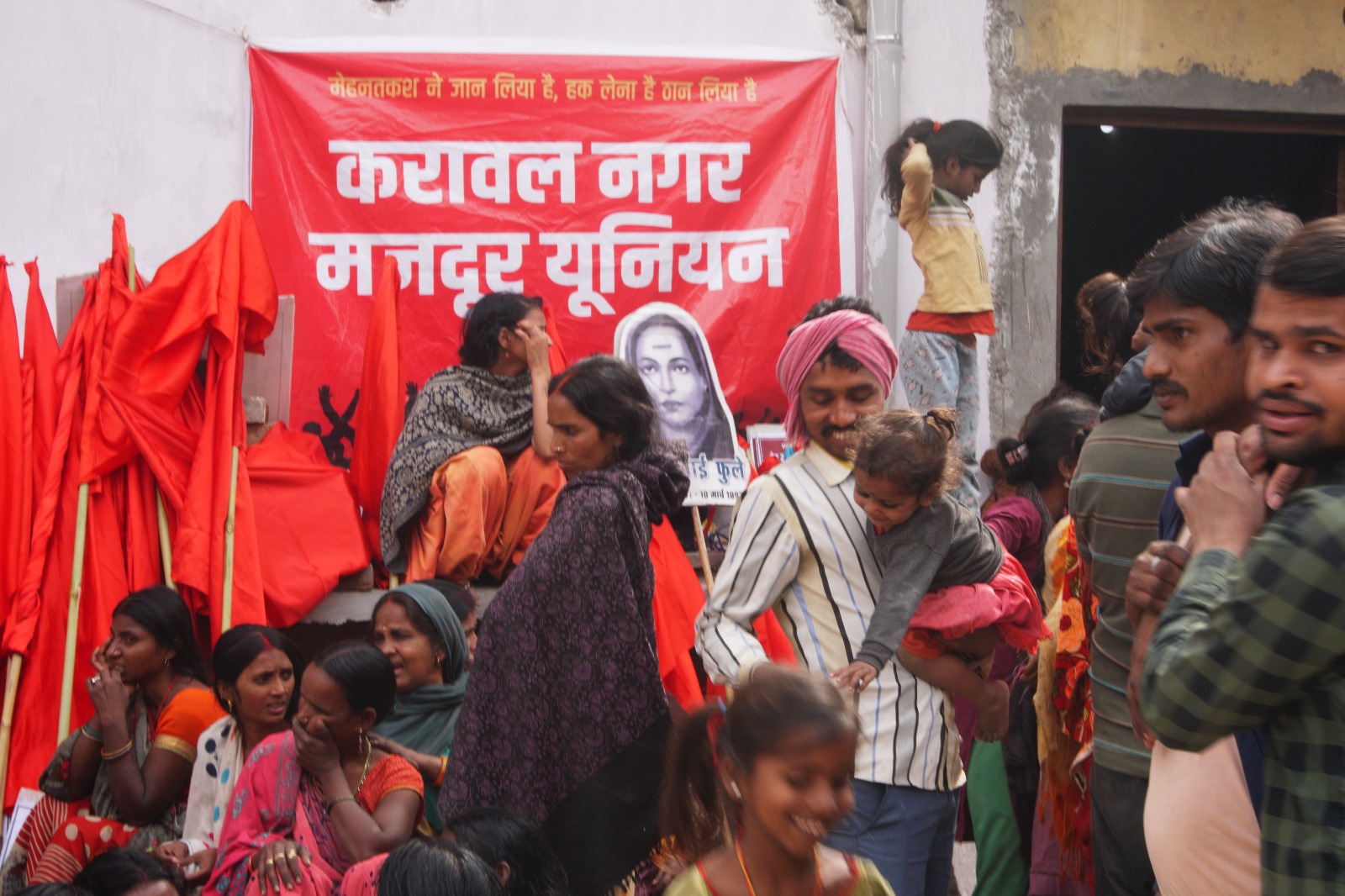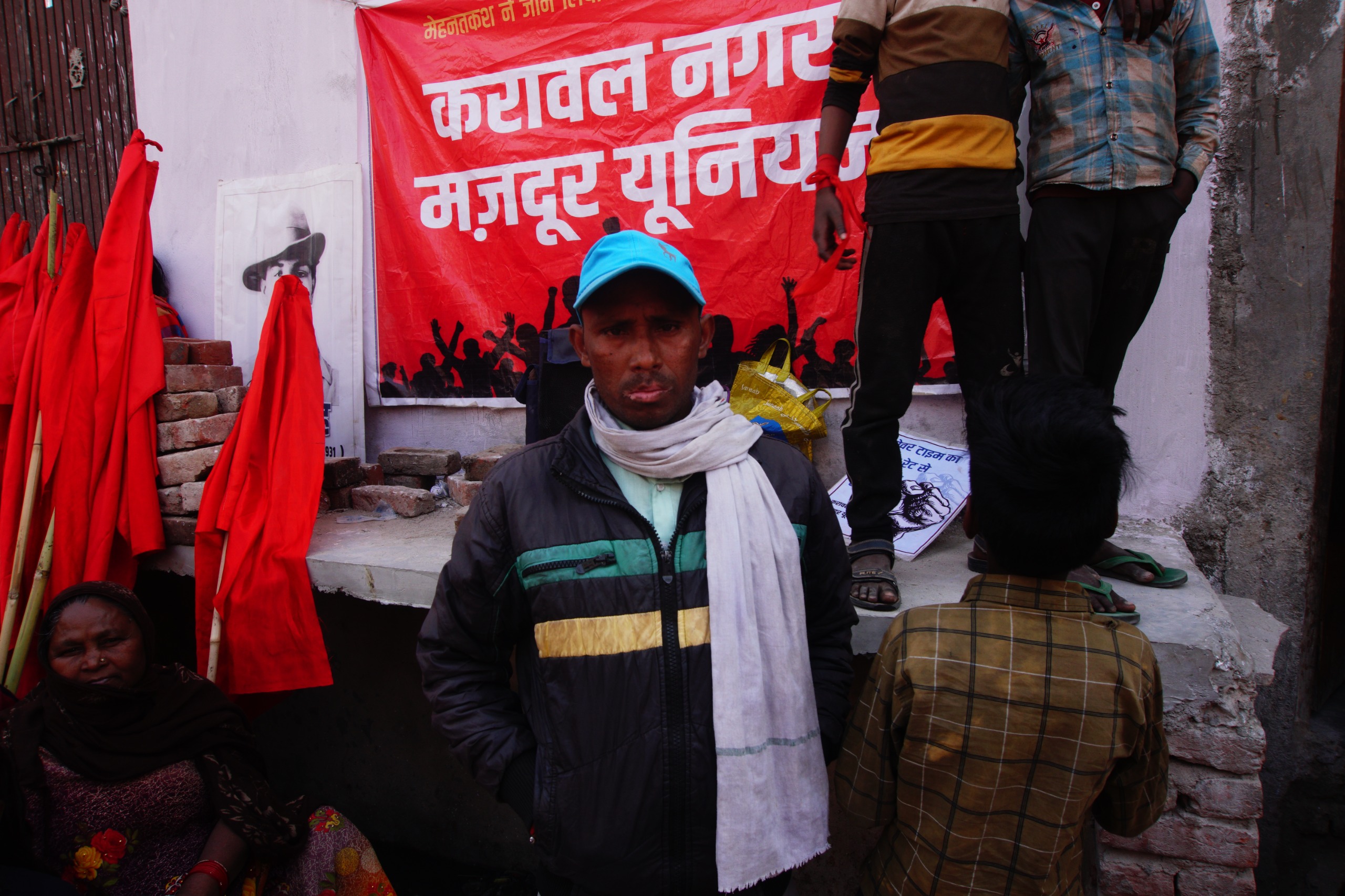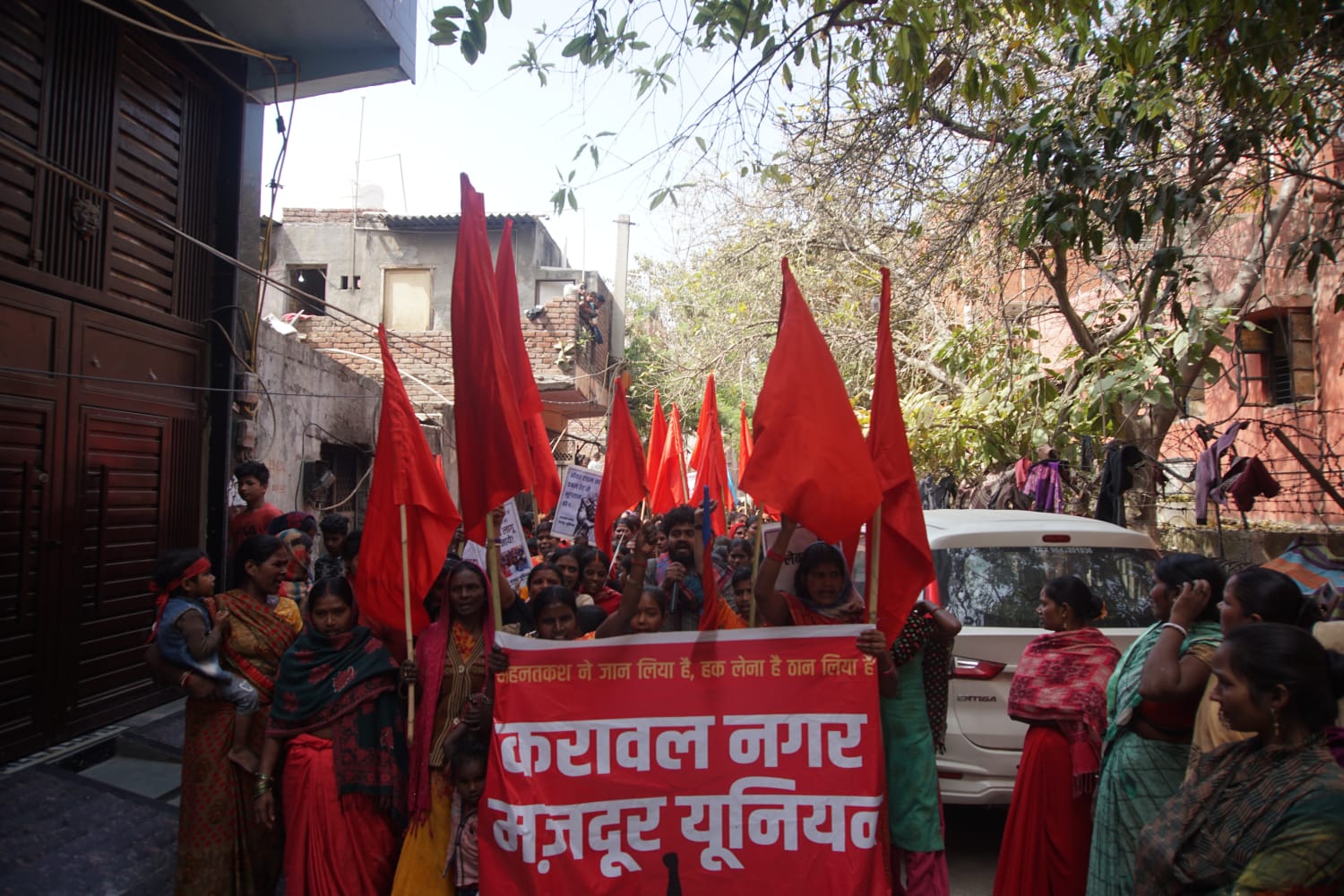Thousands of Almond Workers in Delhi Are Fighting To Get Better Wages

Adnan Ali, TwoCircles.net
On a warm March morning, Rinku Devi, 36, sits outside the Government Senior Secondary School in the narrow lanes of Karawal Nagar, a neighbourhood in northeast Delhi, with over a hundred other people, mostly women covering half of their faces with the ghoonghat (veil) of their sarees with one hand and holding red flags and placards in other.
From 10 am to 4 pm, the 100-odd protesters scream at the top of their lungs, demanding higher wages while several loudspeakers blare from all directions and multiple protests rage on.
The workers, the majority of whom belong to the Bind-Beldar Caste, classified as Other Backward Class (OBC), migrated from Bihar decades ago to Delhi in search of employment opportunities to support their families, and have been on strike since 1 March, when they held a rally to present their demand to the owners for higher wages. On March 3, the workers submitted a memorandum to the Prime Minister's and Chief Minister's offices in Delhi, seeking intervention.

Karawal Nagar is home to 50 almond warehouses, none of which are licensed, and operate in the basements of the owners' large bungalows, where over 4000 labourers are employed to pluck almonds, clean, and sort them before packaging.
18 hours shift at the warehouse pays INR 250
Rinku's typical day consists of waking up at 4 am, preparing breakfast for her three school-aged children and her husband, a beldar (a construction worker), before heading to the warehouse where she removes the outer coats of almonds. A day’s work, usually sixteen to eighteen hours, earns Rinku less than INR 250.
When the almond sorting machines were installed at the warehouses in 2008, their wages were reduced to INR 1 for each kilogram of almonds sorted. The workers protested in 2012, and their pay was increased from INR 1 to INR 2 per kilogram. Since then, Rinku has earned INR 2 for manually sorting one kilogram of almonds, an amount which was set in 2012 and has not been revised since. Those employed in the operating machines — mostly men, are paid INR 5 per kilogram. However, according to Delhi's labour rules, the minimum wage for an unskilled worker is INR 673 per day.

Workers allege assault by warehouse owners
On 9 March, Rinku along with other protesting women went to the almond warehouses as they received information that despite the strike, some workers were still working in the godowns. When the women arrived at the scene to halt the workers, they were allegedly assaulted by the almond warehouse owners' men.
"As soon as we reached the warehouse to find those women, the goons started to thrash us. The warehouse owner made the goons drink liquor and was instigating them to us. One of the goons hit me with a stick on my arm, and then he struck my head, and I fainted right at the spot,” Rinku recounted, showing her injured right arm.
The women then went to the Karawal Nagar police station to lodge their complaint, but they claimed the officers refused to file the First Information Report (FIR).
Two Circles reached out to the Karawal Nagar police station, about the allegations levelled against police but received no response.

Skyrocketing Inflation but no raise in wages
Urmila Devi underwent uterus surgery six months ago and has been working in the warehouse without leave to support her family. "My husband is an alcoholic, so we live separately, and I work at the warehouse to support my children," explained the 35-year-old, who lives in a rented 10x12 room with her four children and pays INR 2,000 in rent.
Another worker, Gyanti Devi, moved to Karawal Nagar from Islampur, Bihar, two decades ago to work as an almond sorter. "I've been working here as a worker for the past 20 years. I have dedicated my entire life to this effort. have given my whole life to this work. I live in a rented home, and I have raised my children with whatever I have earned as a labourer. Inflation is touching the sky right now, but our wages stay the same. How am I to support my home and the basic needs if the wages of us labourers will not increase?” asks the 45-year-old, adding that she gets no more than INR 250 per day working 18 hours a day, which is insufficient to support the family.
Deplorable working conditions at the almond warehouses
Workers report deplorable working conditions. At least 40-50 employees work together in a dim hall with little ventilation.
"The washrooms at the Gowdaam stink and are unusable. It is difficult for us to work there for such long hours and have no access to separate or clean washrooms'', explains Gyanti.
In addition, sawdust and scabs from almond shells enter their system during the cleaning and sorting processes.

“It gets dangerous for us as the burada (sawdust) that comes out during the sorting process accumulates in our lungs, causing respiratory problems. No masks are provided to us for our safety either," claimed 18-year-old Dilkhush, who began working at the age of 15 to support his family.
Dilkhush claims his parents previously worked in almond sorting. "I do the same work as there are no employment opportunities," he said.
Almond workers Rinku and Urmila have lost wages during the strike and are concerned that if the owners do not raise their wages, they would be unable to provide for their families.
Adnan Ali is a student of Masters in Convergent Journalism from AJK MCRC, Jamia Millia Islamia.
